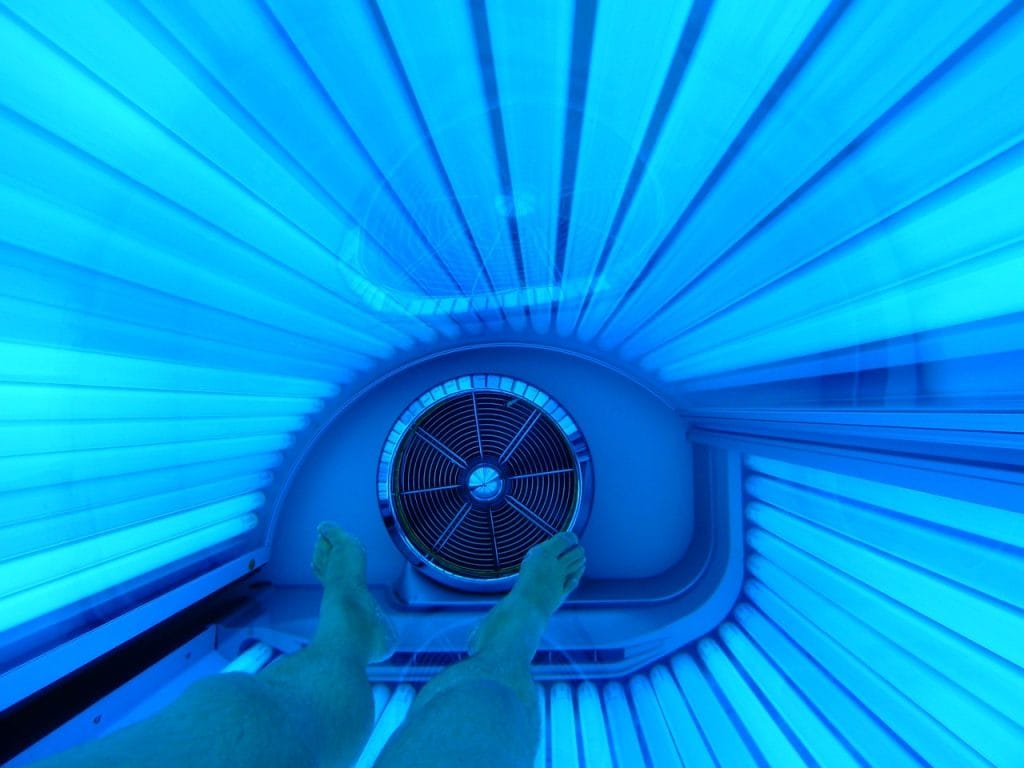There is an opinion that exposure to the sun has a beneficial effect on human health, and in winter the lack of sunlight should be compensated by visiting a solarium. We decided to check if this is true.
They write about the benefits of exposure to the sun for the human body. portalsdedicated to a healthy lifestyle. Manufacturers sunscreens, news resources and Internet users in their blogs To improve health, it is recommended to take sunbathing, that is, to deliberately and for a long time be in the sun - for example, on the beach. On the sites spa centers and specialized online stores even approvedthat in winter, when the sun is less active, you need to go to the solarium.
The benefits of sun exposure are usually associated with obtaining vitamin D. The body really needs it for normal functioning, and for many people (some researchers call the figure billion people all over the world) it is in short supply. Our body is able to independently produce one of the varieties of this vitamin - D3 - from cholesterol under the influence of ultraviolet light. However, it can be get and from food - for example, by adding fatty fish or egg yolks to the diet. Another, identical in effect, version of this substance - D2 - can be obtained from dietary supplements. Overall, how note According to Harvard Medical School, there is no point in exposing yourself to ultraviolet radiation when you can get enough vitamin D from food.

"Verified" already sorted it out popular claims about the benefits of vitamin D for promoting bone health, preventing cancer, treating depression and preventing coronavirus. Research has shown that the vitamin's beneficial effects in achieving these goals are, at best, controversial in scientific circles, and at worst, completely refuted by research results. Therefore, the benefits of this substance - and therefore of sunbathing to obtain it - are somewhat exaggerated.
But scientists have no disagreement about the dangers of tanning. The mere change in skin color under sun exposure is a protective measure. reaction body that is trying to produce more melanin, a substance responsible for pigmentation and capable of absorbing dangerous UV rays, protecting the skin from damage. If melanin cannot cope with the intensity of ultraviolet exposure, a person can get sunburn.
WHO specialists notethat exposure to ultraviolet radiation can cause not only sunburn, but also premature aging, skin cancer, eye diseases, including those leading to loss of vision, etc. It can also suppress the immune system, which, in turn, leads to various diseases. With this opinion agree and experts from the US Environmental Protection Agency.
In 2008, specialists from the Brookhaven National Laboratory of the US Department of Energy, as well as their colleagues from the University of Oslo and the Norwegian Institute for Cancer Research built a digital model of the impact of ultraviolet radiation on humans, and also studied the statistics of incidence and survival rates for various types of cancer of internal organs depending on the place of residence of people. It turned out that in the Northern Hemisphere, residents of more southern latitudes, who are exposed to the sun more often and, accordingly, receive more vitamin D, are less likely to die from internal organ cancer than those who live further north. It is noted that skin cancer and other cancers in regions closer to the equator are still more common.

The US Center for Disease Control (CDC), citing WHO data, notesthat to obtain the required amount of vitamin D you need to be in the sun only two to three times a week for 5–15 minutes. American Academy of Dermatology does not recommend use sunbathing or a tanning bed as a source of this substance, preferring nutritional supplements and foods rich in vitamin D. Experts note that there is no safe dose of ultraviolet radiation - in the sun or in a tanning bed - that would provide enough vitamin D without increasing the risk of developing skin cancer. Skin Cancer Foundation Experts claimthat it is better to avoid tanning altogether, both natural - under the sun, and acquired in a solarium.
Regarding tanning beds, the WHO's International Agency for Research on Cancer admits Artificial tanning devices are carcinogenic. By data According to the US Department of Health and Human Services, people who have sunbathed in a solarium at least once have a 22% higher risk of developing melanoma, one of the most dangerous types of cancer. American scientists in 2012 came to conclusionthat the risk of getting skin cancer from tanning beds is higher than lung cancer from smoking. In many European countries (e.g. France, Spain and Germany), the use of solariums by minors forbidden due to health risks. And in Brazil and Australia such a ban was introduced for the entire population.
Thus, most experts agree that prolonged (more than 15 minutes) and frequent exposure to the sun does more harm than good. The lack of vitamin D, which is actually produced in our body thanks to ultraviolet radiation, can be replenished in safer ways. Tanning, although it will help achieve this goal, carries with it the risks of skin cancer, decreased immunity, the development of eye diseases, etc. If we talk about tanning beds as a way to obtain vitamin D, they are so unsafe that in some countries their use is even prohibited or seriously limited.
Mostly not true
Read on the topic:
- Truths and myths about vitamin D
- Is it true that sunscreens are destroying coral reefs?
- Is it true that ultraviolet manicure lamps increase the risk of skin cancer?
If you find a spelling or grammatical error, please let us know by highlighting the error text and clicking Ctrl+Enter.






